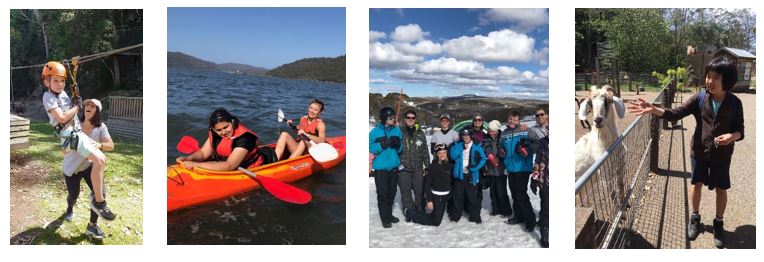It’s hard enough to educate any child, but to engage and maintain the attention of children with autism and keep them interested and happy when trying to teach them something – that is indeed a challenge! How does Giant Steps Australia do it? It seems that patience, understanding, and creativity works wonders as we found out on our recent visit to the Giant Steps school in Gladesville to present our donation cheque. This video sums up what was a very special thank you from Giant Steps to Accru Felsers clients and staff for our donation.
As a thank you to Accru Felsers clients and staff for the record $19,000 we raised at our recent Melbourne Cup function, Giant Steps invited Partner Rebecca Beitzel and I into their world to see what they do first hand.
As we heard from Barry Irvin, Giant Steps Chair and our Melbourne Cup guest speaker, children with autism are often very anxious and fearful. Verbal communication, social skills and interaction with others are things they have great difficulty with. Some children don’t like being touched, let alone being in a group of people. This is where Giant Steps makes a massive difference.
The school’s Occupational Therapy Director, Andrew Frakes, explained that a teacher, therapists and educators are assigned to each class and work together to deliver an integrated program that meets each child’s learning and behavioural needs and goals. They find that a group learning situation is much more effective than one-on-one therapy as it helps the children apply the social skills they are learning to the real world.

Andrew also explained that children with autism learn better visually than verbally, so the schools daily program is represented in pictures with lots of photos, charts and drawings used in class. The beautiful art wall created by the children (pictured below) shows how art also helps them to communicate visually!

Giant Steps ‘Assemblies’ bring the whole school together regularly for singing and announcements that help children feel comfortable participating in a relatively big group. The songs also help them understand how to act in a social situation based on the messages the song expresses. Presenting our ‘big cheque’ in the Assembly was the highlight of our visit.
The camps Accru Felsers helped to fund are a vital part of Giant Steps’ program and enable the children to build independence and self-help skills while learning to cope with changes to their environment. A few classes had just returned from camp at the time of our visit, and while one little girl was adamant she didn’t like camp, the skills she learnt will be with her for life!

Many other autism services simply don’t have the resources or capabilities to accept children with very high needs like some of those we met. According to Barry Irvin, while it’s not a highly paid profession, Giant Steps attracts highly skilled staff, invests in their professional development and has some of the highest retention rates in the sector. Their dedication and professionalism were obvious.
Giant Steps Principal, Kerrie Nelson, said “We do some hard yards but our culture is based around the fact that we can and do make a difference. When children come to us at 3-4 years old, you can’t predict how it will turn out – some of them surprise us. It’s hard to give that vision to parents, that things will actually change for the better.”
Thank you Giant Steps for a great insight into autism education.
By Sue McLean & Rebecca Beitzel, Accru Felsers